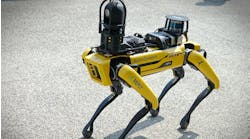When I first became involved in MES, there were barriers that would quash the enthusiasm of almost any small manufacturer. The cost of the sensors and the software. The risky all-at-once implementation. The fear that this was just another fad.
But decreased prices, incremental implementation, alternative solutions and real-world take-up have shown that Smart Manufacturing is increasingly a necessity, with an MES being the foundation, the first critical step. Even for smaller manufacturers.
I see three ways smaller manufacturers can leverage smart manufacturing:
1. Take Advantage of Sensor Tech
The first is the way applicable to all manufacturers—using today’s affordable sensors to get better data, then using that data to fine-tune the process, decrease variability and remove bottlenecks. All of these bring costs down and drive quality up.
2. . Remember: It’s a People Process
Smaller manufacturers have the edge in building volumes of one—in other words, customized orders. For many smaller manufacturers, the look is less assembly line and more set of work stations. This means that the operator in a smaller plant typically makes more decisions. It’s a more people-oriented process.
Imagine, for example, a small micro-brewery. While the concept of brewing beer is very similar in a small brewery to the major brewers of the world, the level of automation in the microbrewery is very, very low. But, this comes at a significant advantage: variety. It’s a heck of a lot easier to offer a beer of the month when the main source of “automation” is the guy who stirs the wort …by hand! The automation that makes the big guys so efficient also makes them less nimble. That’s a competitive advantage. Look no further than the explosion of microbreweries—at the expense of the big guy’s market share.
But—variability is a bad word in manufacturing! Every difference in process you have costs and increases risk.
And this is where Smart Manufacturing can help, through orchestration of work processes. The goal is to stamp out any unnecessary differences in process. Yes, if you’re doing short runs or one-offs, you’ll have more variations in process than on the typical assembly line. But the more you can minimize variability, the more you improve quality, decrease costs and expose yourself less to risk.
If your team follows an orchestrated business process, you ensure you don’t build every component just a bit differently. Smart Manufacturing allows small manufacturers to deliver a consistent outcome in a repeatable way, by removing unnecessary process differences.
Once you’ve hired your consultant to create the optimal workflow, you can stop there and enjoy the fruits of your investment.
But you can also go further and choose a cloud-based or SaaS (software as a service) MES. Now you’ve removed the barrier of the capital investment in the new system, and the implementation is considerably simpler. You can reap the advantages of an MES (decreased costs, improved quality, less waste, enabling of continuous improvement) that once was affordable only to the major players.
3. Join the Global Ecosystem of Supply
This third way that smaller manufacturers can benefit from Smart Manufacturing is a bit more pie-in-the-sky. Still, bear with me. We’re getting there, it’ll happen.
Imagine a supplier has just signed an order for the production of a thousand wojjits, delivered to 20 countries around the world. In the old days, the wojjits would probably be made in one factory and then shipped hither and yon. But among other barriers, the shipping cost could make this a sub-optimal choice.
Now that Smart Manufacturing ties smaller manufacturers into the global ecosystem of supply, with its own global digital language, that order can easily be broken up into smaller orders. A smaller manufacturer can accept a local order, and follow the orchestration of that order through the process, with its system tracking their compliance to the accompanying instructions.
Once complete, the wojjits can be delivered to the end customer and confirmed through additional compliance records back to the umbrella contractor—the auto-message being, “This is what I delivered and here is the certification.”
Andew Waycott is the Chief Operating Officer and Chief Technology Officer at Factora
Read the full story on IndustryWeek, a companion site in Penton's Manufacturing & Supply Chain Group.










